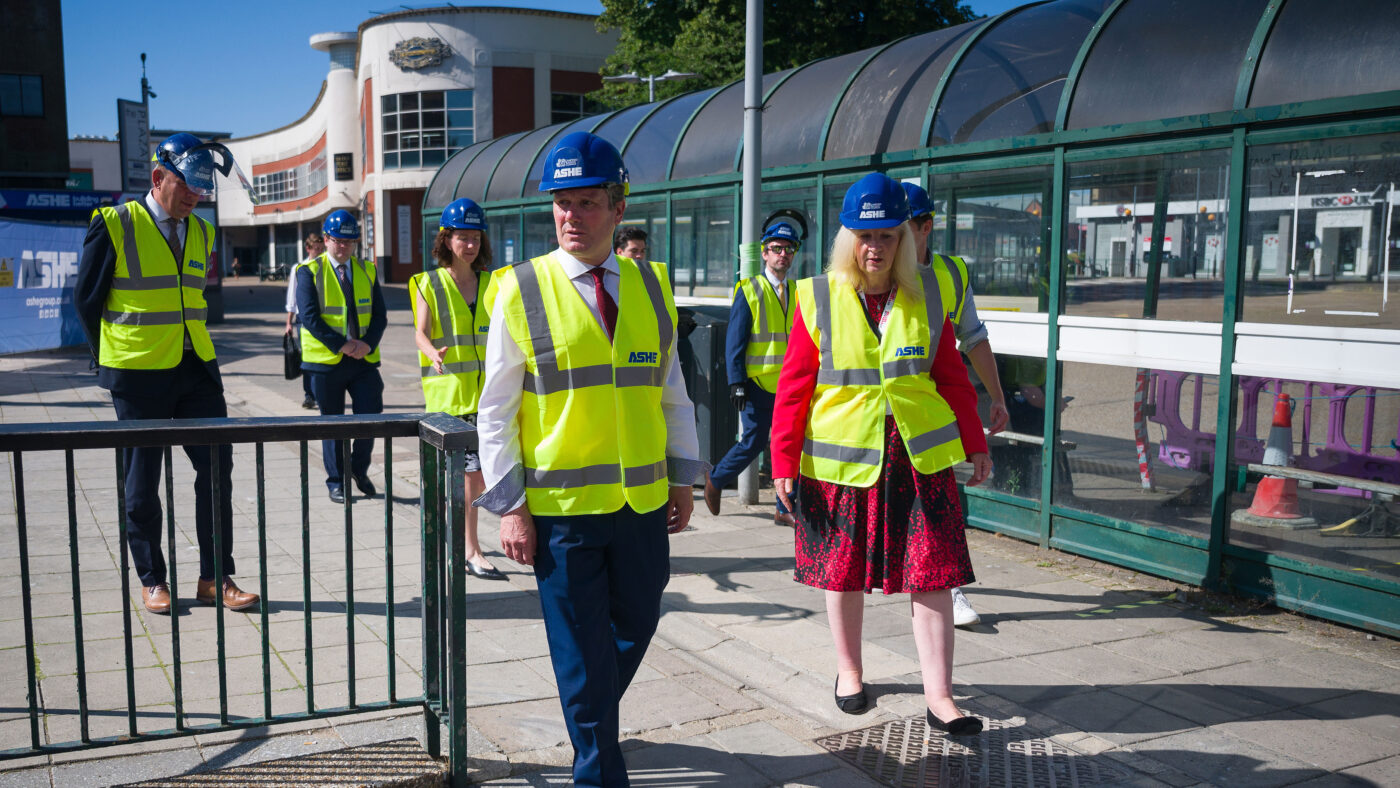We’ve had Waitrose Woman and Workington Man, now policy wonks have come up with another electoral archetype who will shape the next general election – Stevenage Woman.
According to the thinktank Labour Together, Stevenage Woman is ‘in her early 40s, she’s a mother, in full-time work, struggling with stagnant wages and rising costs’.
I must declare an interest here. I live very near Stevenage, and have spent a lot of my life in and around the town in north Hertfordshire. My dad worked there when I was growing up and three of my four siblings were born there.
It comes as little surprise to me that they have landed on this little corner of England as home to a key voter who – should Keir Starmer listen to her – will be vital to the outcome of the next election.
Setting to one side a fairly high degree of cynicism about the psephological ‘types’ of this kind, I have some sympathy with the characterisation of Stevenage Woman as an important electoral demographic – not least as in my experience she has always seemed a pretty sensible person.
It has become a cliché to say that the policy sweet spot that Labour needs to hit if it is to secure a proper majority is slightly socially conservative and slightly economically interventionist – and yet this is a perfect definition of where the average woman on the Stevenage Omnibus is, on both politics and economics (if she stops to think about it).
It’s worth noting that, like the bulk of sensible England, she doesn’t go too far on any of this stuff – and is horrified if anything that looks rash or extreme: she would worry that the nationalisation of Big Business was a rash financial over-stretch for the country, and she will take nothing but joy from her niece’s gay wedding.
However, Stevenage Woman is interesting not just for her general views, or for her slightly precarious financial situation, but also because of where she lives.
In many ways, in the best possible way, Stevenage is bang average. Its residents experience nearly all of the problems that most key voters across the country experience in a way that any politician serious about being elected needs to tackle. These take in seriously big issues – insecure employment and ingrained white working class underperformance at school to name but two – and the smaller local stuff too.
Yes, that includes potholes (for all those who took the piss out of that picture of Rishi Sunak and Ben Houchen last week). At the risk of mimicking the hyperbole of our last prime minister, the state of the roads around our way are a disgrace.
To pluck another example: provincial bus services, or the lack thereof, is a very live issue in North Herts. Those who live in big cities might not understand this, but all over the country the withering of ‘the bus service into town’ is a huge deal.
The same goes for the slow and painful death of the high street. Shuttered shop windows and the mushrooming of charity shops is a local tragedy that animates Stevenage residents in exactly the same way that it does people across the rest of the country, be it the Red or Blue Wall.
The antisocial behaviour that follows from this footfall crisis is another one. Sir Keir and his team are right to keep banging this drum. Voters will listen.
But the average Stevenage bod is also a lot more pragmatic than stereotyping would suggest on other issues facing the country and would welcome leadership from Westminster. Most obviously, this includes the failure of this country to build enough new houses. This is becoming an important question in Stevenage, where house prices (presumably courtesy of the fast train to London) are beginning to climb away from the national average – and out of the reach of too many normal people.
I’ve run focus groups on the issue of new housing developments in the general area around Stevenage and, as with much of the rest of the country, the inability of grandchildren to put down roots anywhere near their grandparents is now a talking point that animates local people in a way that a minority of local Nimbys might struggle to.
And so on this burning issue, as with so many others, where goes Stevenage, there goes the rest of the country. Let’s just hope our political leaders are listening.
Click here to subscribe to our daily briefing – the best pieces from CapX and across the web.
CapX depends on the generosity of its readers. If you value what we do, please consider making a donation.


